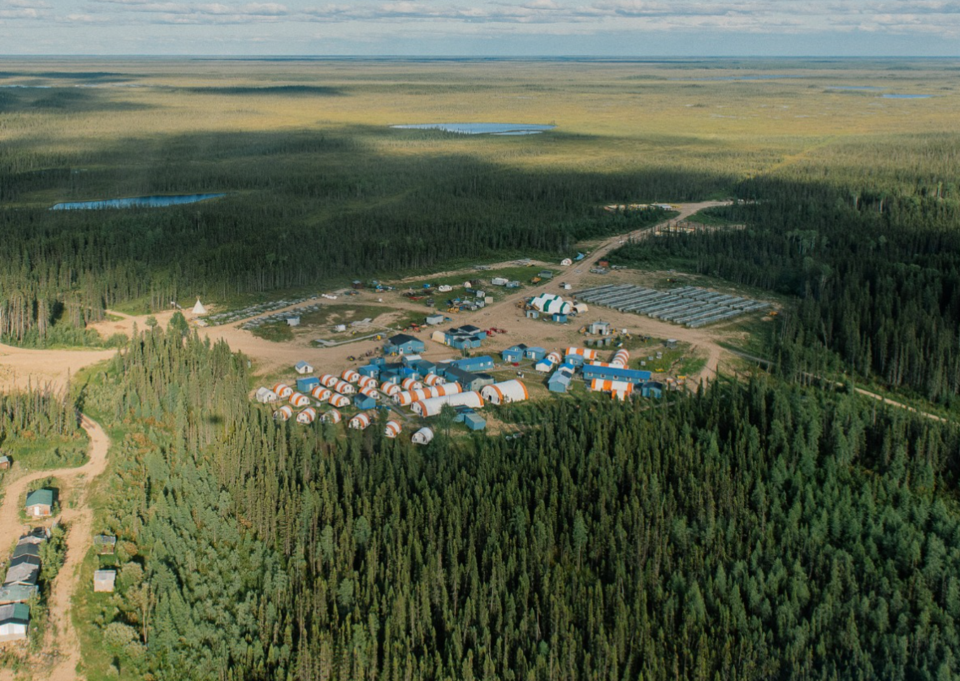Natural Resources Minister Jonathan Wilkinson said Ottawa offered a $40-million sweetener to entice Queen’s Park for a formal sit-down to discuss how to make progress in the Ring of Fire.
So far, Wilkinson said, they’ve been rebuffed by the province.
“To date, Ontario has not taken us up on that, but I continue to urge Ontario to do that. I think it’s an important conversation, but there are really important issues to be addressed before we actually talk about mines.”
Wilkinson offered those remarks in Thunder Bay on Oct. 7 at a news conference to provide $14 million in critical minerals-related infrastructure dollars to a handful of copper and lithium mine builders with advanced-stage projects in northwestern Ontario.
He was referring to a May 17, 2023 letter, as reported in the Globe and Mail, that Wilkinson sent to Ontario Mines Minister George Pirie offering $40 million to create a joint working group with Ontario to explore how to proceed in the Ring of Fire. Ottawa asked that Ontario match this investment for a total of $80 million.
Wilkinson accuses Ontario of not engaging and addressing the concerns that Indigenous people have about industrial development in the region. Forming a joint working group, with the Indigenous communities involved, would advance conversations much faster than the current regional assessment process that’s underway, he said.
“The first thing you have to do is actually sit at a table where you listen and hear the concerns. And that is essentially what we have asked Ontario to do …,” said Wilkinson yesterday.
A federal regional assessment is underway to address those concerns and “we need to see that move forward and come to a conclusion before we make any significant determinations with respect to Ring of Fire,” said Wilkinson.
He called the Far North mineral belt an “interesting geological area” but also a “complicated” one when it comes to mining, given the potential harmful environmental impacts to the James Bay region’s peatlands, and the misgivings and opposition of some Indigenous leaders to allow industrial development in a remote greenfield area that has never seen it.
The regional assessment, he said, will address a range of subjects, Wilkinson said, but “we need to see that move forward and come to a conclusion” before any significant decisions are made.
The minister said it’s “too early” to say whether development in the Ring of Fire will or will not take place, but unless there’s a joint government process to engage with First Nations to address their concerns on important environmental matters, “you will never get anything built.”
Wilkinson’s offer appears to be a non-starter with the province.
“This proposal does nothing to get shovels in the ground and would only add further red tape to a project that is of strategic interest to Ontario, Canada and our allies and trading partners,” said a spokesperson in Mines Minister George Pirie’s office.
In an email, Pirie’s office said taking up Ottawa’s $40-million offer for a joint working group “would only repeat the failure of the 2014 Regional Framework Agreement that the Wynne Liberals wasted four years on.”
The Ford government axed the regional framework table in 2019, citing the lack of productive results, while vowing to start a new consultation process with communities.
Pirie’s office said it’s still waiting for a sign from Ottawa that it’s willing to match a long-standing provincial commitment to provide $1 billion for environmental assessments, roadbuilding, powerlines, broadband and community infrastructure for the Ring of Fire area. That commitment was first introduced by the previous Wynne government and supported by the Ford government.
“To date, our government’s call on Ottawa to match this $1-billion investment has been refused,” the spokesperson said.
“The province remains open to opportunities for collaboration and investment from the federal government that would result in real, tangible progress towards developing the Ring of Fire,” the spokesperson added.
Since the first nickel and chromite discoveries in 2007-'08, development in the Ring of Fire, like Ottawa’s regional assessment process, has moved at a snail’s pace.
Wilkinson happened to be the federal environment minister in early 2020 when he called for the Ring of Fire regional assessment. That file has since been passed on to his successor, Steven Guilbeault. After four and half years, Guilbeault recently signed off on the draft terms of reference and has turned it out for public comments.
The regional assessment process itself doesn’t determine anything. It’s been described as a holistic approach to determine the potential harmful impact of mining in the James Bay region. Its findings will be used to only inform a formal federal environmental assessment of any future mine projects, whenever that process begins.
Guilbeault restructured the process in 2023 to ensure its ‘co-led’ by area First Nations.
Earlier this year, Ottawa said it was going to expedite its environmental regulatory processes through an Action Plan, to ensure more timeliness and more predictability of outcomes for major projects, and to avoid duplication with the provinces — “without cutting corners” — according to an email received by Northern Ontario Business from the Privy Council Office back in June.
However, no effort's been made to speed up the regional assessment process and put a timeline on its conclusion.
According to a spokesperson in the Privy Council Office, “the Action Plan does not contain new measures related to regional assessments led by Impact Assessment Agency of Canada.”
Meanwhile, Wyloo, the most advanced developer in the Ring of Fire, wants to start mining nickel at its Eagle’s Nest deposit by 2027.
Compared to other mining projects in the province, Wilkinson said he bemoans “the media’s obsession with the Ring of Fire.”
“There are so many other mining projects in Ontario and elsewhere that are far more proximate to communities, far more proximate to infrastructure that enable mines, and some of which have far larger deposits than the Ring of Fire….”




